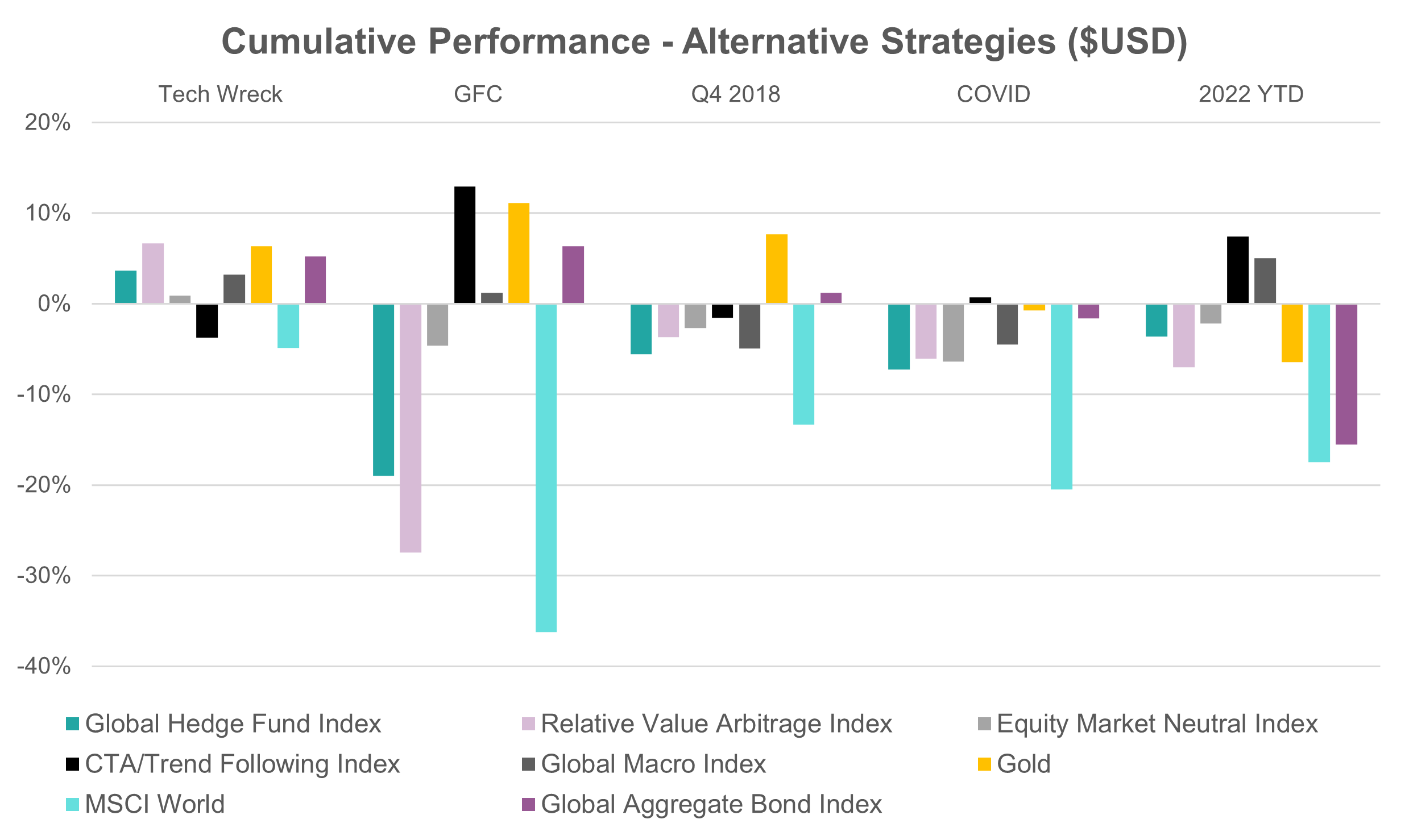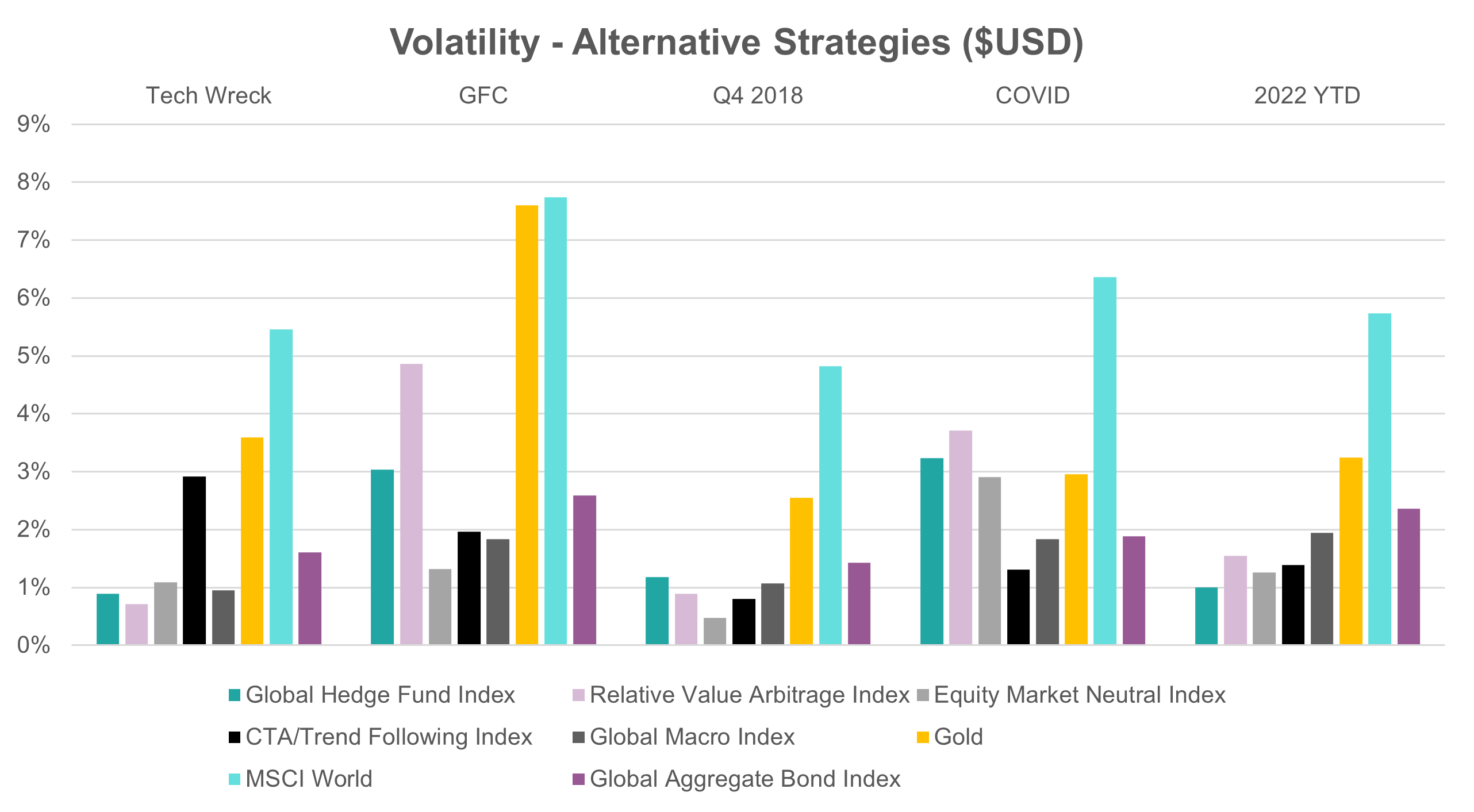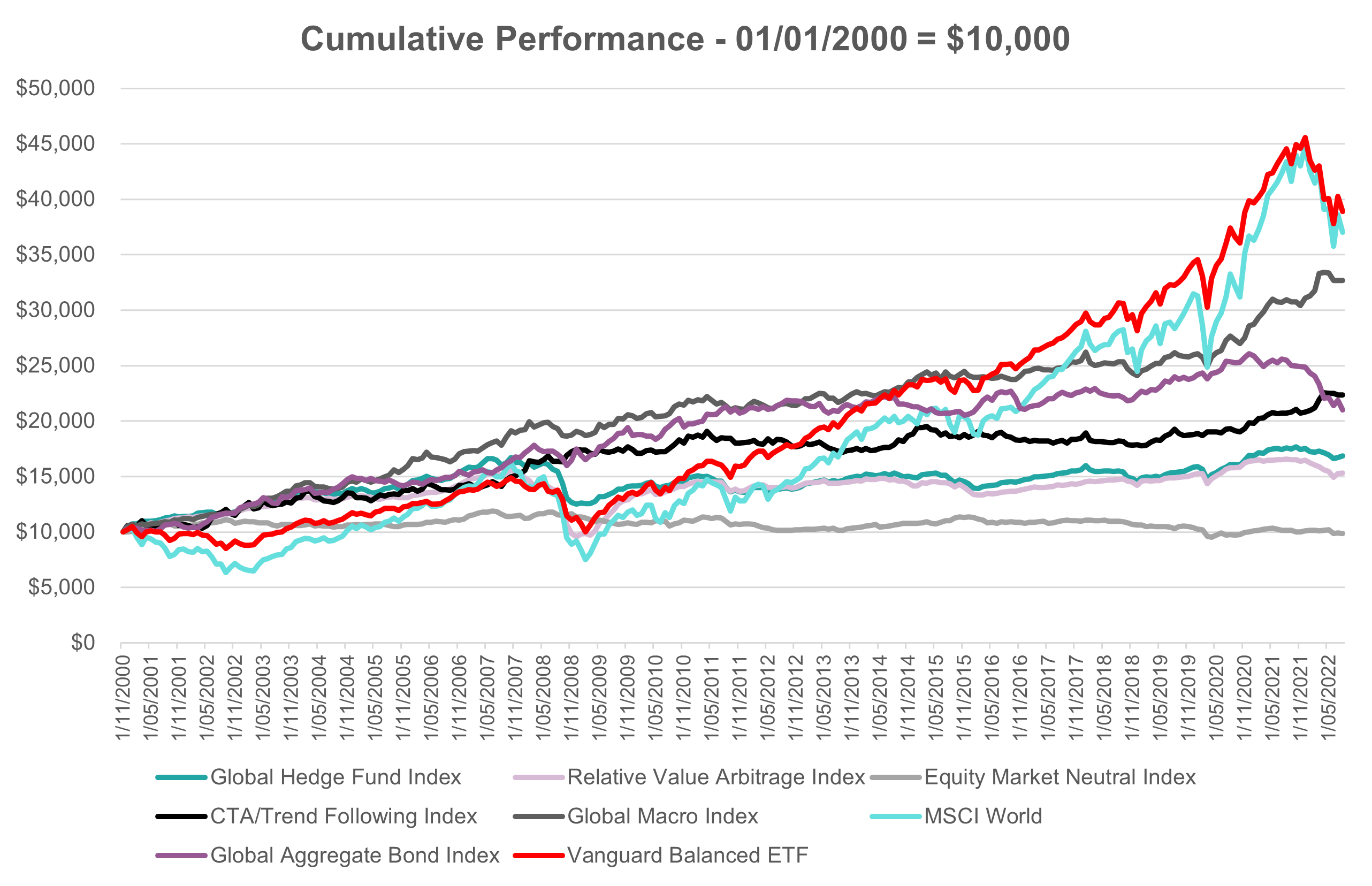Should you invest in alternatives?
Indulge us in a hypothetical:
You’re uncertain of equities and fearful of recent volatility, but your portfolio is chock full of bonds to the limit of your asset allocation. Your traditional growth vehicle is failing you, and your defensive assets are becoming far too concentrated.
Without adding back the exact risk you’ve so carefully tried to remove from your portfolio, where do you turn to next?
Should you invest in alternatives?
In a period where investors are largely positioned away from traditional equity risk and increasingly allocating towards fixed income, it may seem like a two-tone market when it comes to investment choice, particularly when there is more capital to deploy or you want to remain nimble in your approach.
However, alternative investments exist as another option for astute investors to diversify their exposure to certain forms of market risk, whilst seeking to improve their risk-adjusted returns over periods of uncertainty.
These are strategies that can provide diversification when assets begin to move together, enhance returns when traditional investments appear uncertain or weak, or simply act as a hedge against one particular form of risk which your portfolio may be overloaded with.
Alternative investments can often be assessed like seatbelts in a car - when things are smooth sailing, you might barely notice them or think they’re not necessary, but when a sudden crash occurs, they can be life-savers.
The definition of alternatives is far-reaching, but for our view of portfolio construction, “alts” covers those investments which are uncorrelated to major sources of market risk, such as equity market beta or fixed income duration/credit risk. That definition presents a wide universe which can cover:
- Private equity strategies
- Private debt strategies
- Multi-strategy hedge funds
- Trend-following strategies
- Market neutral strategies
- Long/short strategies
- Commodities
For those either investing in multi-asset portfolios, or those who are advising clients doing so, alts can be a complex landscape which is often particular to the market environment of the day and to the risk-profile of the overall portfolio. Not all strategies are always appropriate, and within that you also have a wide array of active managers looking to add value within said strategies.
As a manager who incorporates a systematic forecasting framework to our process, we’ve long wrestled with the idea of alternatives, being an asset class which is infamously difficult to forecast future returns for. However, we have found that you can judge alternatives relative to the traditional asset classes which you can forecast – historically, when traditional asset classes (equities, bonds) have weak periods, alternatives show strength on a relative and absolute basis.
The below chart shows the cumulative performance of several alternative indexes over the past five periods of market selloffs/volatility:

Whilst posting a wide range of performance figures, these alternative indexes have always managed to outperform the MSCI world index over the past five periods of market turmoil. In fact, the performance of several alternative categories in 2022 – global macro, trend-following and commodities – has thrust this asset class back into the spotlight as they posted some of the only positive year-to-date (YTD) results in the market. This has become even more prevalent as stocks and bonds moved in the same direction over this year, giving investors few places to hide and protect their capital.
Performance is not the only dimension to investing, in fact our philosophy places risk as the utmost priority when analysing the merit of any asset – volatility should play a key part in any investment process and particularly forecasting framework, including answering if you should invest in alternatives.

From
a risk-adjusted performance perspective, these periods make alternatives seem
like a no-brainer: maintain a sizeable allocation all the time, and you’ll
outperform equities and bonds without thinking. Well depending on your
performance objective, this unfortunately may be too easy – given the general
trend of equities over the past two decades has been positive with
occasional drawdowns, the cumulative performance of the index or a simple
balanced fund has outpaced all alternative strategies:

Source: Bloomberg, Innova Asset Management
Though
this does not mean that you should attempt to time investment into alternatives,
it does mean that an exposure to alternatives should be considered with a
robust investment process and in-line with your view on risk. Alternatives
cover many areas of the market, not necessarily just as a hedge against equity
weakness, which means there are always additional dimensions to consider with
such an investment.
For
example:
View: global equity markets will slowly and consistently fall for the next year
If you take this view, you would not be adding exposure to a long-only equity strategy or an alternative which relies on volatility. However, investing into a trend-following manager who can take advantage of a consistent direction in markets fits your view and may also fund a dollar-cost-averaging strategy into traditional markets as your investment thesis plays out and your alternative exposure provides returns to your portfolio.
View: markets are going to be choppy and sideways for the next year
If you follow this view, then trend-following will likely be sub-optimal and long-only equities will still not serve your portfolio goals. In this scenario, skilled alternatives managers implementing a market neutral or relative value strategy can still harvest income and gains in volatile market environments, which helps diversify both risk and return sources within an overall portfolio setting.
When there is no alternative
Alternatives are an asset class which astute investors should always consider for a multi-asset portfolio. Though not always an essential allocation, such strategies can prove invaluable when markets have a regime change or enter a period of enhanced volatility and negative returns. In these markets, your portfolio needs assets which are uncorrelated, value-additive, and effective in capturing returns from their respective strategy.
Though often considered opaque and complex, investors have a wealth of resources at their disposal to gain clarity and assistance in this space – from dedicated alternative investment platforms offering access to leading global strategies, to asset managers implementing a robust and risk-managed approach to multi-asset portfolio construction.
5 topics

